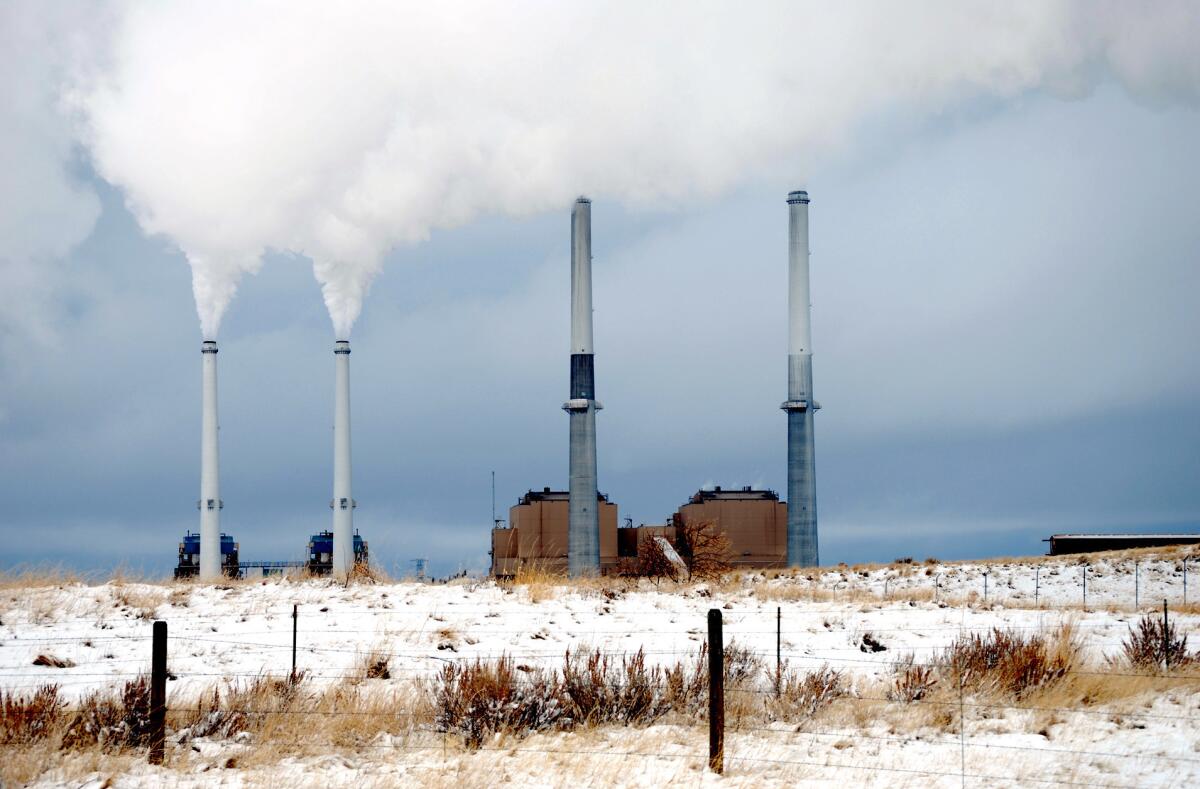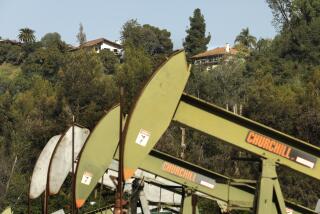EPA delays rule limiting emissions from new power plants

WASHINGTON — The Environmental Protection Agency has delayed indefinitely a much-anticipated final rule limiting greenhouse gas emissions from new power plants.
Proposed a year ago, the rule was the first to set limits on carbon dioxide emissions from new plants. Once a limit is set for new facilities, the EPA is legally obligated to address existing plants, which pose the true climate threat for now. The United States’ power plant fleet is the single biggest source of greenhouse gas emissions in the world.
But the EPA missed an April 13 deadline to issue the final rule on new plants, without explanation.
“We are working on the rule and no timetable has been set” for its release, said Alisha Johnson, an EPA spokeswoman.
The draft rule for new power plants sets a limit of 1,000 pounds of carbon dioxide per megawatt-hour of electricity by new power plants. That standard would have been easy for natural-gas-fired plants to meet, but not conventional coal plants. Already, electric generation companies are building natural gas plants almost exclusively because of the low price of gas. But the new rule, in its draft form, would have all but precluded building new coal plants. Critics of the rule said it was a backdoor way of killing coal-fired power generation.
Some environmentalists and congressional staff members said that second thoughts at the EPA and the White House over the single standard might have led to delay. The EPA is almost inevitably sued when a new rule is issued, and setting two greenhouse standards — one for coal plants and the other for natural gas — might make the new rule more legally defensible.
But other environmental groups argued that separate standards made little sense.
“Setting a separate standard for coal- and natural-gas-fired plants would greatly weaken the standard’s ability to ensure a transition away from building high-carbon electricity-generation sources,” said economist Rachel Cleetus of the Union of Concerned Scientists.
Acting EPA Administrator Bob Perciasepe said last week that the agency would propose new rules on greenhouse gases from existing plants in fiscal 2014, but declined to elaborate further.
Follow Politics Now on Twitter and Facebook
Twitter: @neelaeast
More to Read
Get the L.A. Times Politics newsletter
Deeply reported insights into legislation, politics and policy from Sacramento, Washington and beyond. In your inbox three times per week.
You may occasionally receive promotional content from the Los Angeles Times.











